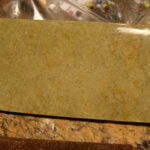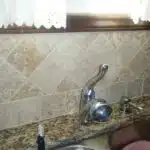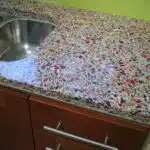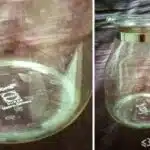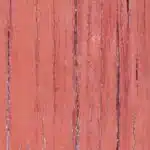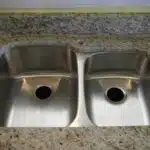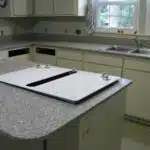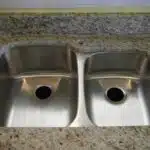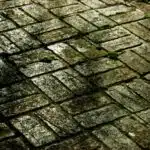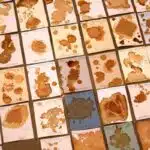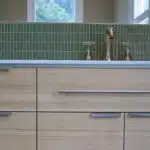Granite is a popular choice for kitchen and bathroom countertops due to its durability, natural beauty, and resistance to scratches and heat. However, it requires regular cleaning and maintenance to maintain its shine and prevent damage. As a professional granite cleaning expert, I will outline the best practices for cleaning granite surfaces to ensure they stay looking their best for years to come.
Cleaning granite can seem like a daunting task, but with the right tools and techniques, it can be done quickly and efficiently. It is essential to avoid harsh chemicals or abrasive materials that can cause damage or dull the surface of the granite. Instead, gentle cleaners formulated specifically for use on granite should be used along with microfiber cloths or soft-bristled brushes. By following these simple steps, you can keep your granite countertops looking as good as new while prolonging their lifespan.
Understanding Granite’s Properties
Granite is a popular choice for kitchen and bathroom countertops due to its durability, aesthetics, and resistance to heat and scratches. However, like any other natural stone, it requires proper maintenance to preserve its appearance and extend its lifespan. Granite maintenance involves cleaning techniques that are specific to the stone’s properties.
One of the most important things to understand about granite is that it is porous. This means that it has tiny spaces between its crystals that can absorb liquids if left unsealed or unprotected. As such, spills should be wiped up as soon as possible to prevent staining or etching on the surface. Additionally, acidic substances like lemon juice, vinegar, or wine can cause chemical reactions with the minerals in granite and result in dull spots or discoloration.
To clean granite effectively, avoid using abrasive materials like steel wool or harsh chemicals like bleach or ammonia-based products. These can scratch or damage the surface and strip away the protective sealant. Instead, use a pH-neutral cleaner specifically formulated for granite surfaces. Apply the cleaner onto a soft cloth or sponge and gently wipe down the countertop in circular motions. Rinse thoroughly with warm water and dry with a microfiber towel to prevent water spots from forming.
Understanding granite’s properties is crucial for maintaining its shine and longevity. By following appropriate cleaning techniques using gentle cleaners while avoiding harsh chemicals and abrasive materials, you can ensure your granite countertop remains looking beautiful for years to come. The next step is identifying common stains and spills that can occur on granite surfaces.
Identifying Common Stains And Spills
As we have previously discussed, granite is a popular choice for kitchen countertops due to its durability and aesthetic appeal. However, it is also important to note that granite requires proper maintenance to keep it in pristine condition. In this section, we will identify common causes of stains and spills on granite countertops and provide prevention tips.
One of the most common causes of stains on granite countertops is spills from acidic liquids such as lemon juice or vinegar. These acidic substances can etch the surface of the granite, causing permanent damage. Other common culprits include oil-based substances such as cooking oils or cosmetics, which can leave unsightly marks on the surface of the countertop.
To prevent stains and spills from damaging your granite countertops, there are several prevention tips you can follow. First and foremost, be sure to wipe up spills immediately using a soft cloth or paper towel. Avoid using abrasive cleaners or scrubbers that can scratch the surface of the granite. Additionally, use coasters under glasses and avoid placing hot pans directly on the countertop.
In order to properly clean your granite countertops, it is essential to prepare a cleaning solution that is safe for use on this type of stone. In the next section, we will discuss how to prepare your own cleaning solution using natural ingredients that are gentle yet effective in removing stains and spills from your granite countertops.
Preparing Your Cleaning Solution
To properly clean granite, it is important to prepare the right cleaning solution. One of the most effective ways to do this is by mixing warm water with a pH-neutral cleaner in a ratio of 1:4. This means that for every one part of cleaner, four parts of water should be added. The solution should be mixed well and then poured into a spray bottle for easy application.
If you prefer to use alternative solutions, there are other options available. For example, you can mix equal parts of rubbing alcohol and water to create a cleaning solution that is effective at removing stains and disinfecting surfaces. Another option is to mix baking soda with warm water until it forms a paste-like consistency. This can be used as a natural scrubbing agent for tougher stains.
Preparing the right cleaning solution is crucial when it comes to maintaining the appearance and longevity of your granite countertops or surfaces. By following these guidelines for mixing ratios and alternative solutions, you can ensure that your cleaning solution is both effective and safe for your granite. In the next section, we will discuss how to choose the right cleaning products for granite surfaces.
Choosing The Right Cleaning Products
After preparing your cleaning solution, it is crucial to choose the right products for cleaning your granite. In fact, choosing the wrong product can cause damage to your granite countertop. According to a survey conducted by the Marble Institute of America, 68% of homeowners use acidic or abrasive cleaners on their natural stone surfaces, which can lead to etching and scratches.
To avoid damaging your granite and keep it looking pristine, here are some tips for choosing the right products and avoiding toxins:
- Look for pH-neutral cleaners specifically designed for natural stone.
- Avoid using vinegar, lemon juice, or other acidic substances.
- Never use abrasive scrubbers like steel wool or scouring pads.
- Opt for non-toxic and eco-friendly products that are safe for you and your family.
- Always read the label before purchasing any cleaning product.
Using microfiber cloths for gentle cleaning is an effective way to maintain the beauty of your granite countertop without causing any harm. Microfiber cloths are soft, absorbent, and non-abrasive. They trap dirt and dust particles effectively without leaving any streaks or scratches on your granite surface. Plus, they are reusable and machine washable, making them a cost-effective and eco-friendly option for regular cleaning.
Remember that maintaining the cleanliness of your granite requires careful consideration in choosing products that will not harm it while keeping it clean. With these tips in mind, you can confidently clean your granite countertop with ease and ensure its longevity.
Using Microfiber Cloths For Gentle Cleaning
Microfiber cloths are a great option for gentle cleaning of granite surfaces. These cloths are made from tiny synthetic fibers that are much smaller than human hair, allowing them to trap dirt and bacteria in their fibers. The benefits of using microfiber cloths for cleaning granite include its ability to remove dirt and grime without leaving any streaks or scratches, making it perfect for delicate surfaces like granite countertops.
Using microfiber cloths is also an eco-friendly option as they can be washed and reused many times, reducing the amount of waste produced by disposable cleaning materials. Additionally, microfiber cloths require less water and cleaning solution than traditional cleaning methods, which further reduces environmental impact. By choosing to use microfiber cloths for gentle cleaning of your granite surfaces, you are not only taking care of your home but also contributing to the well-being of the planet.
If you prefer not to use microfiber cloths for any reason, there are alternatives available that can still provide gentle cleaning to your granite surfaces. For example, you may consider using a soft-bristled brush or sponge with mild soap and warm water. However, it is important to note that abrasive tools or chemicals should be avoided at all costs as they can cause permanent damage to the surface of your granite. In the next section, we will discuss these alternative options in more detail so you can choose what works best for you while keeping your granite looking its best.
Avoiding Abrasive Tools And Chemicals
Just like how a gardener must carefully tend to their plants, homeowners must also be mindful of keeping their granite countertops in pristine condition. However, unlike a garden that can be easily replanted, granite is a natural stone that cannot be replaced once it’s damaged. Therefore, it’s crucial to take note of the cleaning dos and don’ts when it comes to maintaining your granite countertops.
One of the common mistakes homeowners make is using acidic substances such as vinegar or lemon juice to clean their granite. While these household staples may seem harmless, they can cause etching on the surface of the stone over time. Instead, opt for pH-neutral cleaners or simply use warm water with mild dish soap to keep your countertops clean.
Another important tip to remember is avoiding abrasive tools such as steel wool or scrub brushes. These items can scratch and dull the surface of your granite countertop, which can lead to expensive repairs down the line. It’s best to use soft cloths or sponges when cleaning your counters and avoid applying too much pressure when scrubbing away stains.
Next up on our list is removing stubborn stains from your granite countertops. While some messes can be wiped away easily with a damp cloth, others may require extra elbow grease. Stay tuned for our next section where we’ll discuss effective ways to remove tough stains from your beloved granite countertop without causing any damage.
Removing Stubborn Stains
Granite is a durable and beautiful surface, but it is also prone to staining. To remove stubborn stains, vinegar, baking soda, commercial cleaners, and scrubbing brushes can all be employed. Vinegar’s acidity helps break down tough stains, while baking soda is a mild abrasive that can help remove the stain without damaging the surface of the granite. Commercial cleaners can be used to gently clean the granite without harming the surface. Scrubbing brushes used in combination with these other techniques can help to remove stubborn stains from the surface of the granite.
Using Vinegar
As a professional granite cleaning expert, I understand the importance of keeping your granite surfaces clean and maintained. One effective method for removing stubborn stains is through the use of vinegar. While there are alternative solutions available in the market, vinegar stands out as an affordable and natural option.
Vinegar’s acidic properties make it an excellent cleaner for granite surfaces that have accumulated dirt and grime. However, it is essential to note that frequent use of vinegar may damage the surface’s sealant over time. Therefore, it is crucial to limit its use to once or twice a week when necessary.
Suppose you’re looking for alternative solutions to remove stubborn stains on your granite surface. In that case, baking soda mixed with water can be equally effective without damaging the sealant. Baking soda also has the added benefit of being gentle on your skin and environmentally friendly.
In conclusion, using vinegar can be an excellent solution for removing stubborn stains from granite surfaces when used appropriately. As a professional granite cleaning expert, I recommend using vinegar once or twice a week while exploring alternative solutions like baking soda mixed with water to maintain your surface’s longevity effectively. Remember always to follow recommended cleaning frequency guidelines and avoid harsh chemicals that may damage your granite surfaces’ sealant over time.
Baking Soda
Another effective natural alternative to remove stubborn stains from granite surfaces is baking soda mixed with water. As a professional granite cleaning expert, I recommend this DIY cleaning solution as it is gentle on both your skin and the environment. Baking soda’s mild abrasive properties make it an excellent option to clean without damaging the sealant of your granite surface.
To use baking soda as a cleaner, mix three parts of baking soda with one part water until you achieve a paste-like consistency. Apply the paste on the stained area and let it sit for five to ten minutes before gently scrubbing with a soft-bristled brush or sponge. Rinse thoroughly and dry with a clean cloth. This method effectively removes tough stains like coffee, oil, and food residues.
In summary, natural alternatives like baking soda mixed with water can be just as effective in removing stubborn stains from granite surfaces without causing damage to its sealant. As a professional granite cleaning expert, I encourage you to explore these DIY cleaning solutions while following recommended cleaning frequency guidelines for optimal maintenance of your valuable investment.
Dealing With Hard Water Deposits
When dealing with hard water deposits on granite, it’s important to use the right cleaning solution and technique to avoid damaging the surface. Hard water deposits are caused by minerals in water that accumulate over time and leave a white, hazy film on surfaces. To remove these deposits, start by mixing equal parts water and vinegar in a spray bottle. Spray the solution onto the affected area and let it sit for about 10 minutes before wiping it off with a soft cloth.
If the hard water deposits are stubborn, you can try using a commercial cleaner specifically designed for granite. Be sure to follow the manufacturer’s instructions carefully and test the cleaner on an inconspicuous area first to ensure it doesn’t cause damage or discoloration. After cleaning, rinse thoroughly with clean water and dry with a soft cloth.
To prevent buildup of hard water deposits on your granite surfaces, it’s important to wipe them down regularly with a damp cloth or sponge. Avoid using abrasive scrubbers or harsh chemicals that can scratch or damage the surface. Additionally, consider investing in a high-quality granite sealer that will help protect against stains and mineral buildup over time.
Transition: While removing hard water deposits is important for maintaining the appearance of your granite surfaces, preventing scratches and scuffs is equally crucial for preserving their longevity.
Preventing Scratches And Scuffs
Granite is a durable and long-lasting natural stone that is popular for countertops due to its unique patterns and colors. However, this does not mean it is invincible to damage. Scratches and scuffs can occur on granite surfaces if proper preventive measures are not taken. These damages can be unsightly and may require repair options that can be costly.
One of the most common causes of scratches on granite surfaces is the use of abrasive cleaners or scrubbers. These cleaning tools can cause small scratches that may not be noticeable at first but will accumulate over time. To prevent this, it is best to use a soft cloth or sponge with gentle soap or a granite-specific cleaner. Additionally, it is important to avoid placing sharp objects directly onto the countertop as they may scratch the surface.
Another way to prevent scratches on granite surfaces is by using protective pads or trivets underneath hot pots and pans. Although granite is heat resistant, sudden changes in temperature can cause cracks or discoloration on the surface. By using protective pads, you protect your countertop from these kinds of damages.
Lastly, regular maintenance of your granite countertops can help prevent scratches and scuffs from appearing. This includes wiping up spills immediately, avoiding acidic substances like lemon juice or vinegar, and using cutting boards instead of cutting directly on the countertop. By taking these preventive measures, you can ensure that your granite countertops remain beautiful for years to come.
Transition Sentence: Now that we have discussed how to prevent scratches and scuffs on your granite countertops let’s move onto maintaining them for long-lasting beauty.
Maintaining Your Granite Countertops
Granite is naturally a very hard and durable material, but it still requires proper maintenance to keep it looking its best. To maintain your granite countertops, you should start by ensuring that they are clean and free of debris. This can be achieved by using a soft cloth or mop and warm water to wipe down the surface of the countertop.
Using granite cleaning equipment is another effective way to maintain your countertops. You can invest in special granite cleaning solutions or use mild dish soap mixed with warm water. However, it is important to avoid using abrasive cleaners or scrubbing tools as these can scratch the surface of your granite countertops.
If you find that maintaining your granite countertops is too time-consuming or challenging, hiring professionals may be a viable option. Professional cleaning services are equipped with the expertise and tools necessary for maintaining granite surfaces effectively. They can also provide additional recommendations on how best to care for your granite countertops over time, including sealing them for added protection against stains and scratches.
Transition: Now that we have explored some tips on maintaining your granite countertops, let us delve into another important aspect of protecting them – sealing your granite for added protection.
Sealing Your Granite For Added Protection
Choosing a sealer for your granite is an important step to protect it from damage. When selecting a sealer, it is important to consider the type of granite, the amount of use it will receive, and the amount of exposure it will have to liquids. Applying the sealer correctly is also essential for protecting your granite. This includes cleaning and drying the surface, applying the sealer with a soft cloth, and waiting for the sealer to dry completely before using the countertop. To maintain the sealer, it is important to regularly clean the granite with a mild detergent and a soft cloth. The sealer should also be reapplied every few months or as needed. By taking these steps to protect your granite, you can ensure it will remain in good condition for years to come.
Choosing A Sealer
When it comes to sealing your granite for added protection, choosing the right sealer is crucial. There are various sealer options available in the market, each with its unique features and benefits. The two most common types of sealers are penetrating and topical sealers. Penetrating sealers work by absorbing into the pores of the granite, providing long-lasting protection against stains and spills. Topical sealers, on the other hand, create a protective layer on top of the granite surface, providing excellent resistance to scratches and heat.
Before selecting a sealer option, it is essential to consider your specific needs and requirements. If you have a busy kitchen with high traffic, a penetrating sealer may be more suitable as it provides long-lasting protection against spills. For countertops that are not frequently used or exposed to heat, a topical sealer may suffice.
Once you have chosen your preferred sealer option, proper application techniques are vital for achieving optimal results. Be sure to read and follow the manufacturer’s instructions carefully to avoid any mistakes or mishaps during the application process. Additionally, ensure that your granite surface is thoroughly cleaned and dried before applying the sealer to ensure maximum absorption.
In summary, choosing the right sealer option and following proper application techniques are crucial for sealing your granite effectively. By considering your specific needs and requirements when selecting a sealer option and following manufacturer instructions during application, you can achieve optimal results in protecting your granite surfaces from stains, scratches, and spills.
Applying The Sealer
After choosing the right sealer for your granite, it is crucial to apply it correctly to ensure maximum protection against stains and spills. Applying the sealer evenly is essential to achieve optimal results. Before starting the application process, make sure that your granite surface is thoroughly cleaned and dried. Any dirt or debris left on the surface can interfere with the absorption of the sealer.
When applying a penetrating sealer, start by pouring a small amount onto a clean cloth or sponge and gently rubbing it into the surface in a circular motion. Allow the sealer to penetrate for several minutes before wiping away any excess with a clean cloth. For topical sealers, use a soft-bristled brush or roller to apply an even layer of sealer over the entire surface. Be sure to follow manufacturer instructions carefully as some topical sealers may require multiple coats.
After applying the sealer, allow it to dry completely before using your granite surface. This process typically takes anywhere from 24-48 hours depending on the type of sealer used and environmental conditions. Once dry, you can enjoy your newly sealed granite countertops with peace of mind knowing they are protected against stains, scratches, and spills.
In conclusion, proper application techniques are essential when sealing your granite for added protection. Applying evenly and following manufacturer instructions carefully can ensure optimal results in protecting your granite surfaces from damage caused by everyday wear and tear.
Maintaining Your Sealer
After properly sealing your granite surfaces, it is essential to maintain the sealer to ensure long-lasting protection. One of the most critical aspects of maintaining your sealer is checking for expiration dates. Most sealers have a shelf life of one to two years, and using an expired product can result in ineffective protection against stains and spills. Therefore, it is crucial to check the expiration date before applying any sealer.
Another crucial aspect of maintaining your sealer is applying it correctly. Evenly applying the sealer as outlined in manufacturer instructions ensures that all areas are covered and protected against damage caused by everyday wear and tear. It is also essential to avoid over-applying the sealer as this can lead to a hazy or cloudy appearance on the surface.
Regular cleaning of your sealed granite surfaces is also necessary for maintaining the effectiveness of your sealer. Using pH-neutral cleaners and avoiding harsh chemicals or abrasive materials can help extend the life of your sealant and prevent damage to your granite surfaces. By regularly maintaining your granite sealer, you can enjoy beautifully protected countertops for years to come.
Dealing With Chips And Cracks
Now that you have sealed your granite, it is time to address any chips or cracks that may be present. Unfortunately, even with the best care, granite can still sustain damage over time. Repairing cracks as soon as they appear is important to prevent further damage and keep your countertop looking its best.
One option for repairing small chips or cracks is to use a DIY epoxy repair kit. These kits typically come with everything you need to fill in the damaged area and make it look like new. However, it is important to note that this type of repair may not be suitable for larger or more extensive damage.
If your granite has sustained significant damage, it may be time to call in a professional for repairs. A skilled granite restoration expert will have the knowledge and tools necessary to repair even the most severe damage, leaving your countertop looking like new once again.
- Don’t wait too long: If you notice any chips or cracks in your granite, address them right away before they worsen.
- Consider a professional: While DIY repairs can work for small issues, larger problems should be left to the professionals.
- Prioritize maintenance: Regular cleaning and sealing can help prevent future damage and extend the life of your granite countertops.
Incorporating these tips into your granite care routine can help ensure that your countertops remain beautiful and functional for years to come. If you are unsure about how to properly clean or maintain your granite surfaces, consider contacting a professional cleaning service for guidance.
Professional Cleaning Services
Imagine you’ve been tackling cleaning your granite countertops for hours, but to no avail. You’ve tried everything at your disposal, from soap and water to vinegar and baking soda. Unfortunately, nothing seems to work. This is where professional cleaning services come in handy. They have the skills and tools necessary to clean your granite effectively.
One of the benefits of hiring a professional cleaner is that they use specialized equipment that goes beyond what you have available at home. For instance, they may utilize a diamond pad polisher that can remove scratches without damaging the surface of the granite. Additionally, they are trained to handle different types of stains, whether it’s oil or ink spills. These specialists are also knowledgeable about different types of sealants and how best to apply them.
Cost effectiveness is another aspect worth noting when considering professional cleaning services for granite surfaces. Although some people think that doing it themselves will save them money, this isn’t always true. If you don’t have the right equipment or knowledge on how to clean granite correctly, you risk causing damage that could lead to costly repairs later on down the line. Professionals know what they’re doing and can get the job done quickly and efficiently without causing any harm.
In conclusion, professional cleaning services are an excellent option for those struggling with cleaning their granite surfaces alone. They offer many benefits such as using specialized equipment while being cost-effective in the long run. Next up, we’ll answer some frequently asked questions about granite cleaning so you can learn more about how best to maintain these beautiful surfaces in your home or business.
Frequently Asked Questions About Granite Cleaning
Granite cleaning can be a daunting task, especially for those who have never done it before. There are many myths and misconceptions about how to properly clean granite, which can lead to damage or discoloration of the stone. One myth that needs to be debunked is that vinegar and other acidic cleaners are safe for granite. This is not true as acidic cleaners can etch the surface of the stone, causing it to lose its shine and luster.
Another myth surrounding granite cleaning is that using soap and water is enough to keep your countertops clean. While soap and water can effectively remove dirt and grime, they do not disinfect the surface. To ensure your granite countertops are free from harmful bacteria, it’s important to use a disinfectant specifically designed for natural stone surfaces.
For those who prefer a DIY approach to granite cleaning, there are several tips that can help achieve a sparkling clean countertop without damaging the stone. First, avoid using abrasive cleaners or scrubbers as they can scratch the surface of the stone. Instead, use a soft cloth or sponge with a gentle cleaner made specifically for granite surfaces. Additionally, always wipe up spills immediately to prevent staining.
In summary, it’s important to separate fact from fiction when it comes to granite cleaning. Avoid using acidic cleaners such as vinegar and opt for disinfectants designed for natural stone surfaces instead. While soap and water may remove dirt and grime, they do not disinfect the surface so make sure you’re using an appropriate cleaner. And if you choose to go the DIY route, remember to avoid abrasive cleaners or scrubbers that may harm the surface of your beautiful countertops. For troubleshooting common issues with granite cleaning, read on in the next section.
Troubleshooting Common Issues
Frequently, homeowners invest in granite countertops to elevate the look of their kitchen. However, they soon realize that these surfaces require specialized cleaning techniques to maintain their beauty. For instance, a homeowner recently contacted me because their granite had developed etches and discoloration over time. After assessing the situation, I determined that certain cleaning practices were causing these issues.
To remove etches from granite, it is crucial to identify the source of the problem. Etching occurs when acidic substances such as lemon juice or vinegar come into contact with the surface and cause damage. To fix this issue, use a non-abrasive cleaner specifically designed for granite surfaces. Alternatively, you can try using baking soda mixed with water to create a paste and apply it to the affected area for several hours before rinsing.
Discoloration is another common problem that affects granite surfaces. This issue is particularly challenging because there are many causes behind it. One possible cause is improper sealing during installation, which allows moisture to penetrate the surface and cause discoloration over time. To fix this issue, consider hiring a professional to reseal your countertop correctly. Additionally, use only pH-neutral cleaners when cleaning your granite surface regularly.
Here are three tips for troubleshooting other common issues related to granite cleaning:
- Always wipe up spills immediately.
- Avoid using abrasive sponges or scouring pads.
- Regularly apply sealant to protect your countertop from future damage.
By following these guidelines and avoiding harsh chemicals and acidic substances in your cleaning routine, you can keep your granite surfaces looking stunning for years to come!
Conclusion
In conclusion, granite is a durable and elegant stone that requires proper care and maintenance to preserve its beauty and longevity. Understanding the properties of granite is essential in identifying common stains and spills that may occur on this surface. Preparing the correct cleaning solution and selecting the right products is vital in ensuring that your granite surfaces are cleaned safely and effectively.
Microfiber cloths are gentle tools for cleaning granite surfaces as they minimize scratches or damage caused by abrasive materials. Chips and cracks can be remedied through professional restoration services, while regular cleaning can prevent such issues from occurring. Granite cleaning experts recommend seeking help from professional cleaning services for specialized treatments to maintain your granite’s luster.
In conclusion, as a professional granite cleaning expert, I advise homeowners to prioritize regular maintenance of their granite surfaces by using safe and effective cleaning methods. Troubleshooting common issues like stains, spills, chips, and cracks can prevent further damage to the surface of your countertops or floors. Remember that proper care of your granite will ensure its beauty lasts for years to come, making it an excellent investment for any home or business owner. As the saying goes, “An ounce of prevention is worth a pound of cure.”
Image Credits
- “Granite-Basin-3757_8_9” by Michael-Wilson (featured)


